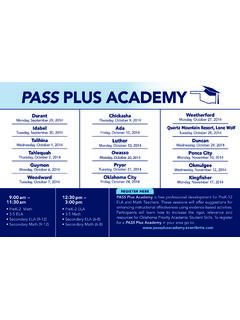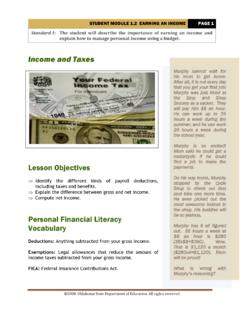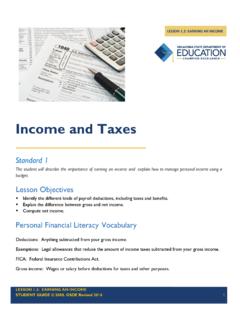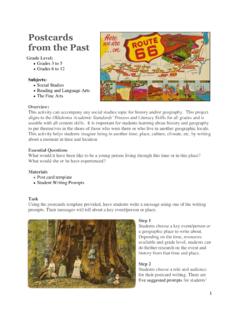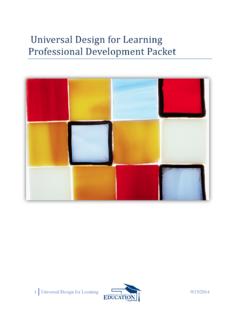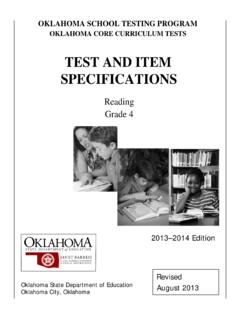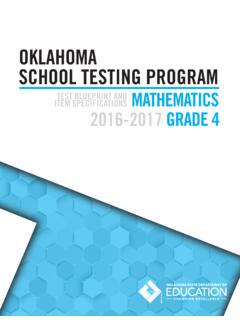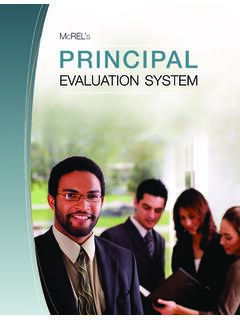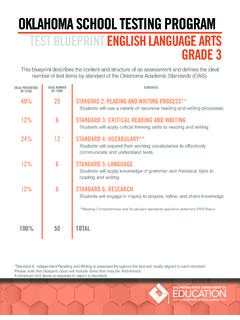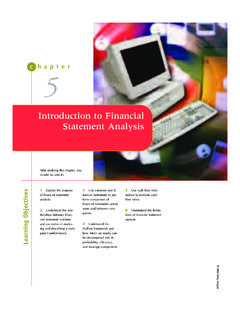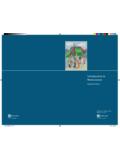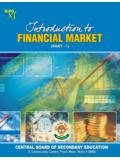Transcription of Student Module INTRODUCTION
1 Student Module INTRODUCTION PAGE 1 2008. Oklahoma State Department of Education. All rights reserved. economic reasoning Priority Academic Student Skills Personal Financial Literacy Lesson Objectives Identify the steps in economic reasoning . Define the terms associated with economic reasoning . Demonstrate the ability to apply economic reasoning . Demonstrate the ability to use the PACED Decision-Making Model. INTRODUCTION : Provides an overview to the economic way of thinking, which is the underlying theme in the Personal Financial Literacy standards. Student Module INTRODUCTION 2 2008. Oklahoma State Department of Education.
2 All rights reserved. Personal Financial Literacy VocabularyChoice: Decision made or course of action taken when faced with a set of alternatives. Cost/benefit analysis, risk/reward relationship: A tool used to choose among alternatives; weighing the cost of a product or service against the benefit(s) it will provide. Disincentive: A factor or disadvantage that discourages people from doing something. Incentive: Any reward or benefit that motivates people to do something. Opportunity cost: The value of the second-best alternative that a person gives up when making one choice instead of another. Scarcity: An economic condition created by an excess of human wants over the resources necessary to satisfy them; an inability to satisfy all of everyone s wants.
3 Trade-off: Giving up a little of one thing in order to get more of something else. INTRODUCTION Lesson o understand the roles of choices, we need to start by examining a typical day. The alarm clock goes off and what happens? We make a choice. We can choose to get up, hit the snooze button and sleep a little longer, or turn off the alarm and sleep later. Once we get up, we choose what to wear, what to eat, where to go, who to see, and when to go back to bed. T Most choices in life have very little to do with money. However, the results of those choices generally have costs that may eventually determine how much money we have. Have you ever heard the saying, There is no such thing as a free lunch?
4 Basically, it means there are no free rides in life. Even if advertised as free, there is still a cost, and somebody has to pay. Student Module INTRODUCTION 3 2008. Oklahoma State Department of Education. All rights reserved. All of those choices are part of life. Think about that first choice: getting up, hitting the snooze button, or turning off the alarm. If we choose to hit the snooze button, what do we gain? We gain an extra ten minutes of sleep, right? What do we lose? We lose ten minutes of time that we might spend with a friend, to study for an exam, to watch TV, to play video games, or whatever. The extra ten minutes of sleep is a benefit; the ten minutes lost by doing another activity is our cost.
5 When we make choices, we try to determine how we can get the most benefit for the least cost. That process means that we have priorities or goals. If spending time with a friend or playing video games is important to us, we make that a priority. That is why we give up the opportunity to sleep ten more minutes. Of course, the opposite is also true. If sleeping ten more minutes is important, that is our priority, and we give up the extra time with friends or playing video games. The idea of considering our benefits and our costs is called the economic way of thinking. It simply means that we have some awareness about what we gain, and some awareness of what we give up; that awareness helps us decide which option is best.
6 Of course, sometimes our choices do not turn out as we expected. Why is that? Maybe we had a lack of information when making a decision. Suppose we get up, look outside and see the sun is shining without a cloud in the sky. With just that amount of information we do not see any need to find our coat or umbrella. We would expect it to be nice outside, and we would dress accordingly. But, what if the DJ on the radio says that it is cold or that a rain storm is coming? Would that change what we wear? It probably would because the DJ gave us additional information. All choices are not as simple as what to wear.
7 Some choices are very complex, which makes it more difficult to make a good decision. If we are deciding which car to buy, or where to go to college, there is a lot more to consider. Even still, the process is the same. Our goal is to determine how to get the greatest benefit for the least cost, and we choose the alternatives that we think will accomplish that goal. In the box below, list all of the choices you have made (or will make) today: Student Module INTRODUCTION 4 2008. Oklahoma State Department of Education. All rights reserved. Why We have to Make Choices It would be great if we could just have everything and not have to worry about it?
8 Well, maybe so, but that is not very realistic. Unfortunately, we make choices because we cannot have everything we want. Even the wealthiest people in the world must decide where to go and what to do. Their list of choices may be different from yours, but still they must choose. We must make choices because we have limited resources. This problem is called scarcity. As individuals, limited resources (time, money, space, etc.) keep us from having everything we want. The same is true for society: there is only so much land and so many workers (resources) that must produce all of the things that people want. Can you think of a situation where people have disagreed over how to use a particular resource?
9 Imagine that your town decides to build a new school on a vacant lot near the highway. The town needs a new school, and this vacant lot is a good location. That land is owned by the Jones family. Should the Jones family sell it so that a school can be built? The answer is: It depends. (Note: In Handout 1, you will help the Jones family decide. Right now, you need more information before advising them.) Opportunity Cost Using the Jones family s vacant lot as an example, suppose that someone wants to build houses on that land instead of a school. Without knowing anything else, you may still think building a school is best.
10 Building a new school on the land means you cannot build new houses on it. Your opportunity cost for building a new school is not being able to build new houses. However, if you want to build new houses, then you cannot build a new school. That means your opportunity cost for building houses is not building a new school. This cost is called an opportunity cost. By building a new school, you give up the opportunity to build new homes on that land. By building new homes, you give up the As simple as it sounds, we all must try to be the best person we can: by making the best choices, by making the most of the talents we've been given.
